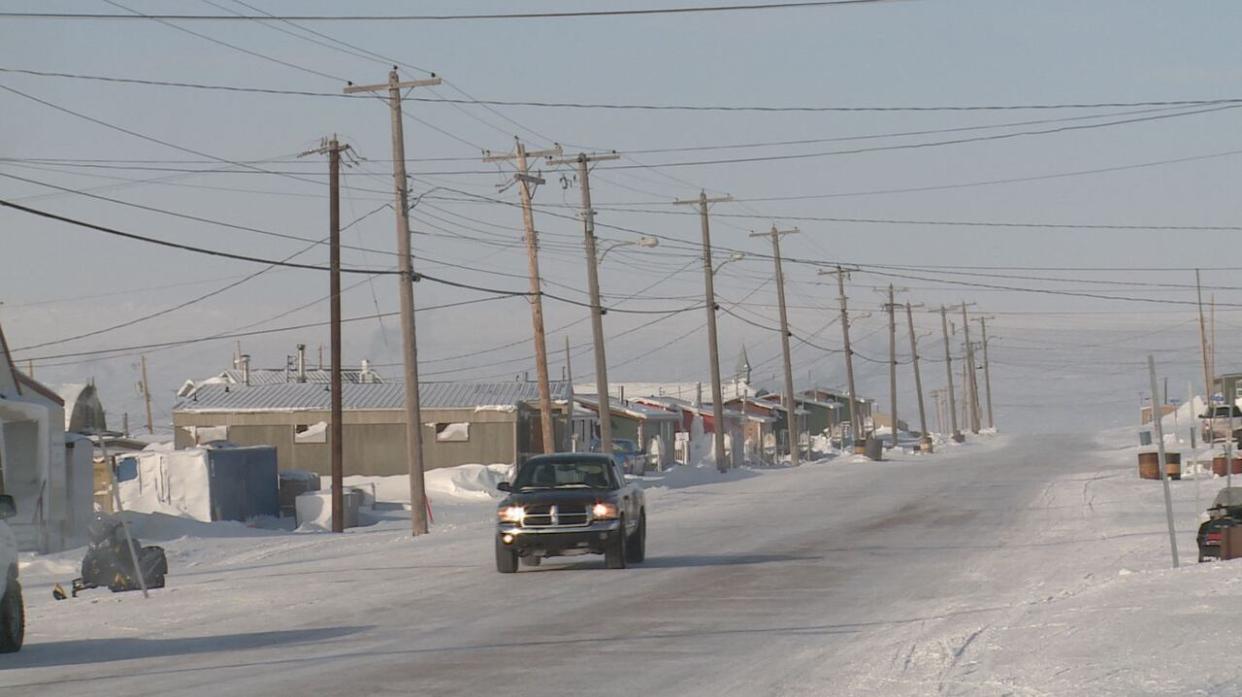Whale Cove, Nunavut, mayor says community was denied approval to help with search for missing man

The mayor of Whale Cove, Nunavut, says the territorial government blocked the community's request for approval to help with official search and rescue efforts last week, after a 21-year-old man went missing from Baker Lake.
The man, who went missing on April 19, was believed to be heading from Baker Lake to Rankin Inlet on snowmobile. His body was found three days later, about 140 kilometres outside of Baker Lake.
The Whale Cove searchers had requested what's called a "tasking number," from Nunavut Emergency Management, which designates them as official searchers, provides insurance and covers fuel costs.
Rankin Inlet and Baker Lake had received tasking numbers for the search, but Whale Cove did not.
Oliver Shipton, Whale Cove's mayor, said he was "very disheartened" to learn the team from his community had been denied.
"We're having people from Iqaluit dictate who gets a tasking number or not, and I don't think they understand how severe the land is and how unforgiving it is, when you have a person's life in danger," Shipton said.
Shipton said the decision didn't make sense to him, given how well the search and rescue team knows the land and trails between the Kivalliq communities.
"This is somebody's life. We all come together and try to help," he said.
Request denied given resources 'already committed'
In an emailed statement, Community and Government Services spokesperson Greg Belanger said Nunavut Emergency Management denied Whale Cove search and rescue's request "given the resources already committed to this search."
"With Whale Cove being over 400 kilometres away from the search area near Baker Lake, considerations of risk management in addition to resource management factored into this decision," Belanger wrote.
"The government of Nunavut is committed to ensuring the safety, security, and well being of all Nunavummiut, including the dedicated search and rescue volunteers," he added.
Searchers from Rankin Inlet, Baker Lake along with helicopters from Agnico Eagles Mines and planes from Buffalo Airways and Calm Air all helped with the search.
Belanger also said the military was called in to help, as were the Canadian Rangers and a chartered plane.
Shipton said the team in Whale Cove ended up deploying anyway, at their own risk.
"That's the type of community we are. We help other people. Because that's the right thing to do," Shipton said. "It's just scary when these people are putting their lives on the line too.
"Everyone's ready to help.The luxury with living in the Kivalliq is, we can travel to other communities."
Shipton said he also wrote a letter to Nunavut Premier P.J. Akeeagok outlining his concerns about the denial.
"It's amazing how this region comes together and helps each other. I think our government needs to step up."

